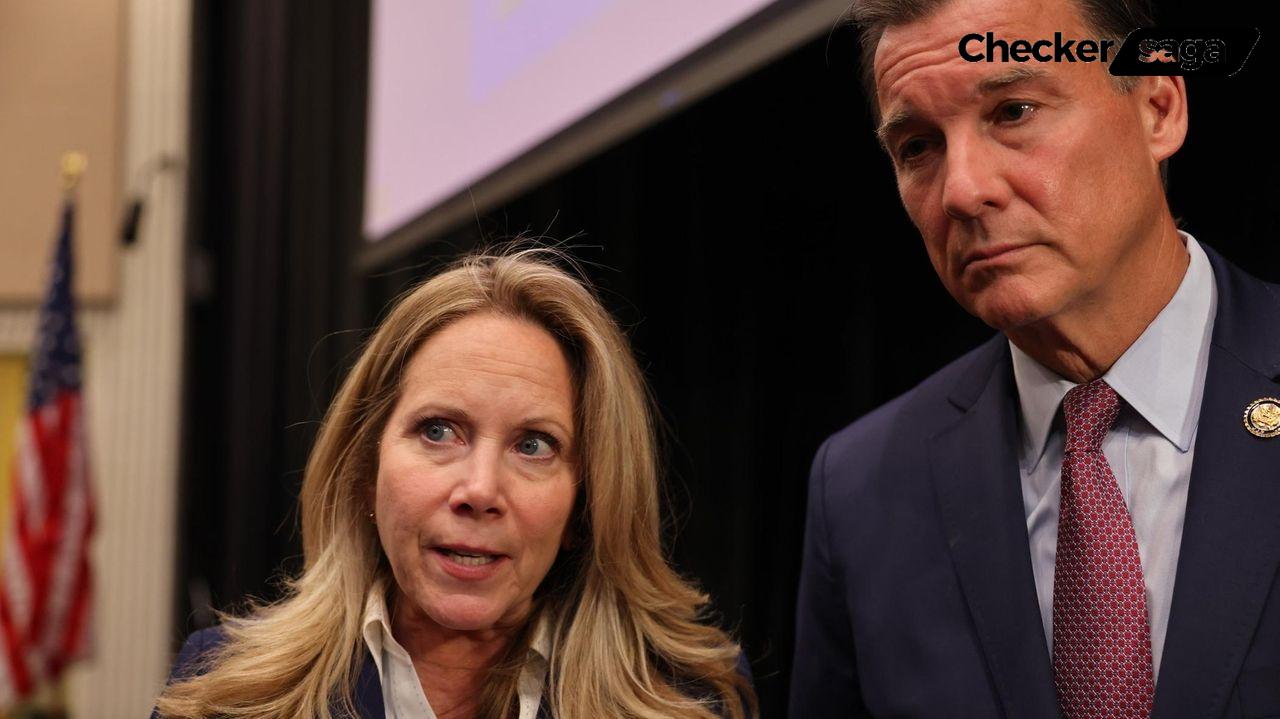In a surprising twist in the world of politics, two New York Democrats, Representatives Tom Suozzi and Laura Gillen, crossed party lines to join Republicans in censuring fellow Democrat Al Green. This decision has stirred up conversations not only about the actions of these three lawmakers but also about the state of political decorum in Congress.
What Happened in Congress?
On Thursday, October 17, the House of Representatives voted to censure Al Green, who represents Texas. The vote tallied at 224 for the censure and 198 against, with an unusual split of support from ten Democrats, including Suozzi and Gillen. The censure was a reaction to Green’s disruptive behavior during a speech by former President Donald Trump. He reportedly shouted and shook his cane, causing a significant uproar in the chamber.
Why Did Suozzi and Gillen Vote for the Censure?
Suozzi and Gillen from Nassau County shared their reasons for breaking ranks with their party. They emphasized the importance of maintaining high standards of conduct in Congress. They believe that both parties should adhere to the same rules and responsibilities. Suozzi expressed that politicians must hold themselves accountable and uphold decorum regardless of their party affiliation. Gillen echoed these sentiments by stressing that civility must be a priority in all political discussions.
The Votes: A Reflection of Political Climate
Both representatives won tight elections in recent years; Suozzi had a narrow victory of 52%, while Gillen won with 51%. Political analysts suggest that their decision to support the censure could be influenced by the shifting political landscape in their district, which notably swung towards Trump during the 2020 elections. This indicates that in order to keep their jobs, they may feel the pressure to show they can work across party lines and align with the values of their constituents.
What is Censure and Its Effects?
The action of censure is a formal statement of disapproval within Congress. It is important to note that censure does not remove a politician from office or strip them of their duties; rather, it serves as an official reprimand. This mechanism is often used to address misconduct among members and to maintain a standard of behavior.
What’s Next for Al Green?
After the censure, Al Green has remained vocal about his actions. He expressed that he felt compelled to speak out against what he sees as harmful policies by the Trump administration, specifically regarding Medicaid. His disruption of the President’s speech stemmed from concerns that Trump was claiming a false mandate to make cuts to this program, which many citizens rely on for their healthcare needs.
Public Reaction and Future Implications
The decision by Suozzi and Gillen to align with Republicans on this issue has sparked significant debate among constituents and political experts. Some view it as a necessary step to uphold ethical standards, while others fear it could deepen divisions within the Democratic Party. The censure vote underscores a growing trend of political realignment and could signal a shift in the way local representatives approach sensitive issues.
Why You Should Care
This incident touches on many important themes in politics today, such as accountability, civility, and bipartisanship. Understanding these dynamics can help young people recognize the importance of respectful discourse and collaboration in governance. As future leaders and voters, knowing how elected officials navigate complex situations is vital for everyone in our communities.
























